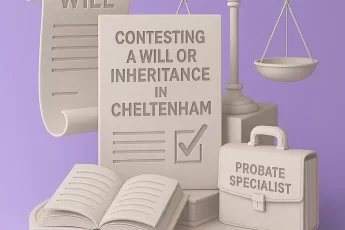In recent years, the escalating cost of living and substantial increases in energy bills have exerted financial pressure on both tenants and landlords. As a landlord, encountering tenants who fail to pay rent on time can be distressing. However, it is crucial to manage this situation calmly and adhere to the proper legal procedures to avoid potential complications. As specialists in Landlord and Tenant disputes, we have written this article to provide a comprehensive overview of the legal process involved in evicting a tenant for non-payment of rent in England.
Understanding the Legal Framework
The eviction process in England is governed by strict legal protocols to ensure fairness and legality. Note that the laws in Wales, Scotland, and Northern Ireland differ.
Types of Tenancies
Most private tenants will have what’s known as an assured shorthold tenancy (AST). These can be:
- Periodic tenancies: Running week by week or month by month without a fixed end date.
- Fixed-term tenancies: Operating for a set duration.

Evicting a Tenant for Non-Payment of Rent
The Possession Order
If a tenant fails to pay rent and does not leave the property voluntarily, landlords must apply to the court for a possession order. This order is the legal confirmation that the landlord has the right to regain possession of their property.
Starting the Eviction Process
To initiate the eviction process for non-payment of rent, landlords should follow these essential steps:
- Serve a Notice:
- Section 21 Notice: Used to evict tenants after a fixed term ends without citing a breach of the tenancy agreement.
- Section 8 Notice: This is appropriate when a tenant has breached the terms of the tenancy, such as failing to pay rent. It must specify the grounds for eviction (like rent arrears) and give the tenant at least two weeks to remedy the situation.
- Apply for a Possession Order:
- Standard Possession Order: If the tenant has not vacated by the expiry of the notice and owes rent.
- Accelerated Possession Order: Suitable when not claiming unpaid rent; it typically does not require a court hearing.
- Warrant for Possession: If the tenant still occupies the property post the possession order, this warrant enables bailiffs to remove the tenants.
Court Proceedings for Recovery of Unpaid Rent
If pursuing unpaid rent, court proceedings can be initiated alongside the eviction process. These aim to recover the owed amounts and may result in a financial judgement against the tenant.
Special Considerations
- Excluded Tenancies or Licences: If the tenant lives with the landlord, eviction can proceed without a court order, requiring only reasonable notice.
- Assured and Regulated Tenancies: Tenancies starting before 27 February 1997 may offer tenants enhanced protection from eviction, requiring landlords to follow specific procedures.
Handling Rent Arrears and Housing Benefits
If the tenant claims housing benefits or Universal Credit, landlords might consider a managed payment arrangement. This allows rent payments to be directed to the landlord instead of the tenant, potentially avoiding the need for eviction.
Legal Implications and Compliance
Failing to adhere to the prescribed eviction process can result in allegations of harassment or illegal eviction. Landlords must ensure they provide the correct notice periods and follow through with legal proceedings if necessary.
Actions Landlords Cannot Take
It is unlawful for landlords to:
- Enter the property without permission.
- Remove the tenant’s belongings.
- Change locks without a court order.
Proactive Measures to Prevent Rent Arrears
To mitigate the risk of rent arrears:
- Maintain open communication lines with tenants.
- Encourage tenants to set up direct rent payments.
- Offer flexible payment plans for tenants experiencing financial hardships.
- Keep detailed records of all rent payments and communications with tenants.
Conclusion
Evicting a tenant for non-payment of rent requires meticulous adherence to legal procedures. By understanding and correctly implementing these processes, landlords can efficiently handle eviction cases while minimising legal risks and maintaining their property rights. If you find yourself in a position where eviction seems necessary, consider consulting with a specialist solicitor at Midwinters Solicitors to ensure that all actions comply with the law and are handled professionally. As specialists in Landlord and Tenant disputes, we are well-equipped to provide the guidance and support landlords need during these challenging situations.





